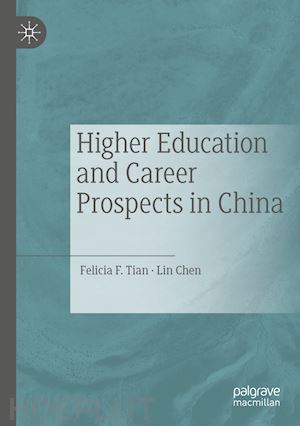
Questo prodotto usufruisce delle SPEDIZIONI GRATIS
selezionando l'opzione Corriere Veloce in fase di ordine.
Pagabile anche con Carta della cultura giovani e del merito, 18App Bonus Cultura e Carta del Docente
Introduction.- Rural-Urban Inequality in Chinese Higher Education.- WU, the Prestigious Path, and Initial Difference.- Advantage Begets Advantage.- Keep Searching, Keep Trying: Always Have the Hope.- Building My Résumé: Every Experience Counts.- Forging My Own path: Becoming the Person I Plan for Myself.- Conclusion.
Felicia F. Tian is an Associate Professor of Sociology in Fudan University, China. Her research interests include transition to adulthood, social networks, and social stratification and mobility. She published From Youth to Adulthood: Social Transformation, Class Differentiation, and Transition to Adulthood in Urban China [In Chinese] (2016).
Lin Chen is an Associate Professor of Social Work in Fudan University, China. Her research interests include qualitative research methods, social identities, interpersonal relationships, decision-making, and long-term care. She published Evolving Eldercare in Contemporary China: Two Generations, One Decision (Palgrave Macmillan, 2016).











Il sito utilizza cookie ed altri strumenti di tracciamento che raccolgono informazioni dal dispositivo dell’utente. Oltre ai cookie tecnici ed analitici aggregati, strettamente necessari per il funzionamento di questo sito web, previo consenso dell’utente possono essere installati cookie di profilazione e marketing e cookie dei social media. Cliccando su “Accetto tutti i cookie” saranno attivate tutte le categorie di cookie. Per accettare solo deterninate categorie di cookie, cliccare invece su “Impostazioni cookie”. Chiudendo il banner o continuando a navigare saranno installati solo cookie tecnici. Per maggiori dettagli, consultare la Cookie Policy.